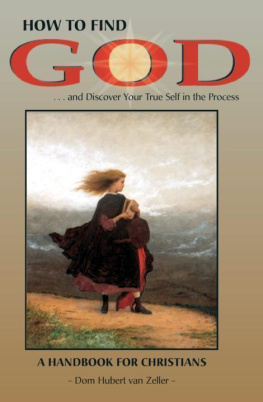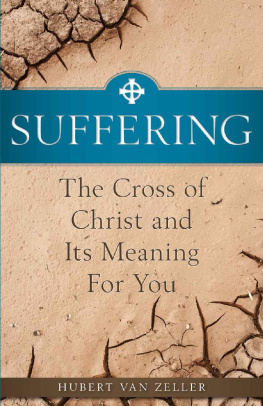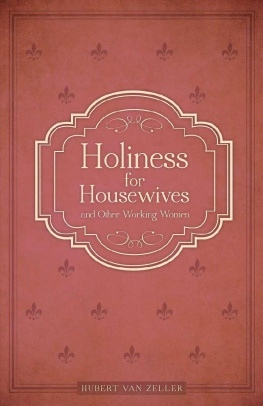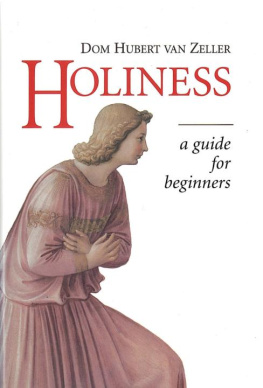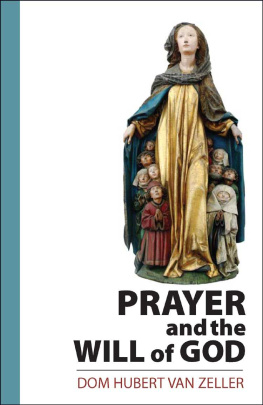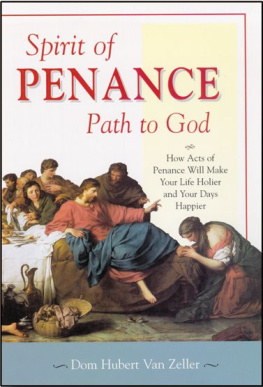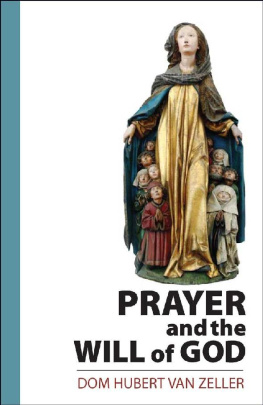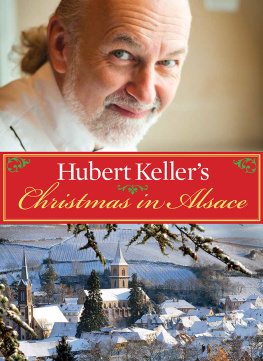and Discover Your True Self in the Process
Also available from Sophia Institute Press by Dom Hubert van Zeller:
Holiness: A Guide for Beginners
Holiness for Housewives (and Other Working Women)
Spirit of Penance, Path to God:
How Acts of Penance Will Make Your Life Holier and Your Days Happier
Dom Hubert van Zeller
... and Discover Your True Self in the Process
A Handbook for Christians





.......... 15
......... 27
............ 39
.................. 51
.................... 63
...................... 85
......... 97
....... 107
...... 119
............ 133
............... 143
............. 151
.......... 161
............. 171
.... 181
...... 195
..... 205
.. 215
....... 221
................. 231
.................. 243

Editor's Note: The biblical references in the following pages are based on the Douay-Rheims edition of the Old and New Testaments. Where applicable, quotations have been cross-referenced with the differing numeration in the Revised Standard Version, using the following symbol: (RSV =).
The whole of our effort of faith, exercised throughout life, amounts precisely to this. But always to search for the face of the Lord is a course that the world does not value. At best, the world allows such a search a secondary place in a man's life.
The world judges it proper that men should search for the Lord sometimes - on Sundays, for example, or when faced with difficulties that unaided human powers cannot overcome. But to search after the face of the Lord always would be considered excessive by the world. Anything more than an intermittent search would be held by the world to suggest religious mania; in religion, one must avoid the extreme.
If the religious mind is to remain untouched by the view of the world, it must be forever returning to the primary truths of faith. For the Christian - not only for the contemplative, but for every Christian - the purpose of life is union with Christ. The Christian aim is to live to the fullest possible extent the life outlined in the Gospel. This is no distant ideal proposed only to mystics and saints; it is an undertaking projected every time an infant is baptized.
From the pages of the New Testament, then, the Christian must collect the material he will need for the search. In his reading, he will come to see the ideal man, Christ; and in his prayer and in his charity, he will come to model himself upon what he sees. Made in the image and likeness of God, a man can do nothing toward realizing the destiny proposed to him until he first knows what, and whom, he is meant to be like.
you begin to explain away the whole teaching of Christ. Take out forgiveness or trust or prayer, and the Gospel falls to pieces.
In the Gospel is contained all the teaching necessary for sanctification. The Gospel reveals Christ to man, and Christ The world follows false lights and so finds itself in ever blacker darkness.
This is the light of Christ. But it is a hidden light.
Faith is always searching for charity and always searching for Christ, yet never finding full satisfaction in love and never knowing whether Christ is found. Faith is walking on the way, but not being sure about it; living for the truth, but having to make acts of faith about it; sharing the life, but feeling dead.
mentioned by Isaiah, no less hidden is the God of the New Testament. But where Yahweh is the God of Justice and the Lord of Hosts, Christ is love. Perhaps one reason God is hidden in the New Testament as well as in the Old is that love, true love, hides itself so effectively. It is easier to submit to the power of God than to share the love of God. To share the love of God calls for a more searching self-surrender.
So long as the soul gropes toward divine love as the fulfillment of its desire, it will not go far wrong. The soul may know little of truth, little of wisdom, but since the love it desires is truth and wisdom, it will find all there is to be found when it finds love. It will find happiness as well, although this will be incidental.
is progressive.
God places in every heart the desire to seek Him
Love hides its face from two classes of souls: the false lovers and the true. The false confuse appetite with love, and so fail to recognize the real thing when it comes to them; the true are kept in darkness about their love, and so add faith and hope to their search for it. The search in faith and hope for the love that seems to be always out of reach is in fact love already discovered.
Those, on the other hand, who look only for the gratification of their appetite are in exactly the opposite condition: they think that they have at last found love when in fact they have found only sensation. Instead of searching in faith and hope, they have searched in greed, and so have searched in darkness.
To be always looking in faith and hope for what is known to exist but evades discovery is not only of the essence of religion, but is also the motive of every generous adventure and the stuff of heroism. The search for the Christ-life is the supremely generous adventure, the one completely worthwhile heroism. But it would be a mistake to see in this the call merely to explore. Souls are not invited to experiment in divine love; they are invited to give themselves to it. Nothing so surely discovers divine love - or human love either, if it comes to that - as the readiness to sacrifice. The condition is immolation. For the Consecration in the Mass, the necessary preparation is the Offertory.
Love and sacrifice are not the same thing, but they are inseparable. To think of Christ and to think of the Cross is not the same thing, but the association is so close that the implication is immediate. Where love has been preached without sacrifice, it has led not to love but to license. Where Christ has been preached without the Cross, such preaching has led not toward Christ, but away from Him. And because the crucifix is to us Christians the symbol of our Faith, the service that we render as Christians is seen in terms of the crucifix. The love that we bring to Christ and the sacrifice that it costs us to bring it to Him are thought of together.

